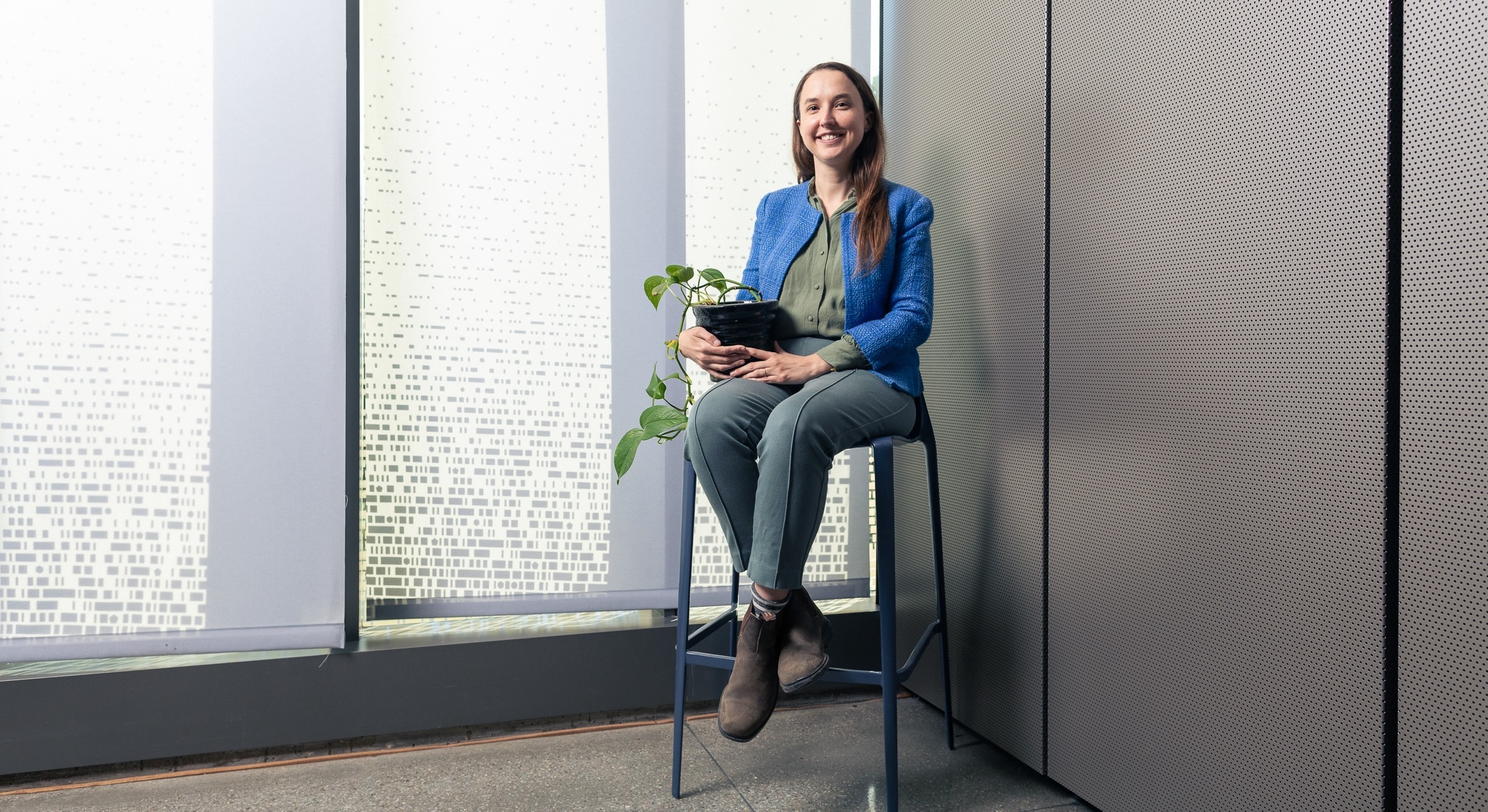
Leah Stokes receives the prestigious Schneider Award for Outstanding Science Communication
With research specialties at the intersections of energy, climate and environmental politics, UC Santa Barbara associate professor Leah Stokes has no shortage of timely topics to talk about, and get others to think of. There’s climate change, water policy, renewable energy, voting behavior. And that’s just her research, published in top journals and distilled into her 2020 book, “Short Circuiting Policy” (Oxford University Press).
Then there’s her climate advocacy, appearing in The New York Times, The Atlantic and The Washington Post. On top of that, she co-hosts the award-winning podcast “A Matter of Degrees,” with author and climate activist Katharine Wilkinson, where the pair discuss the forces that underlie climate change and investigate solutions.
It’s this ability to make sense of the big questions in climate policy for both academic and general public audiences that Stokes was recently named the winner of the 2024 Schneider Award for Outstanding Climate Science Communication from ClimateOne. Named for outspoken climate scientist Stephen H. Schneider, one of the founding fathers of climatology, the award “recognizes a natural or social scientist who has made extraordinary scientific contributions and communicated that knowledge to a broad public in a clear, compelling fashion.”
“I felt honored to be in the company of the other incredible climate science communicators who have won the award in the past, such as fellow Canadian Katherine Hayhoe, as well as Naomi Oreskes, Ayana Elizabeth Johnson and Ben Santer,” said Stokes, the Anton Vonk Associate Professor in Environmental Politics in the UCSB Department of Political Science. “I feel motivated to use my platform to break things down and share them in a way that’s easy to grasp — I’ve always believed that when people understand an issue, they’re more likely to take action. And with something as urgent as climate change, we need everyone to be part of the solution.”
“I cannot imagine a more deserving recipient of this award, which honors an exceptional ‘next generation’ science communicator,” said Charles Hale, Dean of Social Sciences at UCSB. “She is tireless, courageous, and uniquely gifted in her ability — rare among scholars — to distill complex research-based ideas into compelling, media-appropriate messages.”
Among Stokes’ many efforts at UCSB, one in particular stands out: the 2035 Initiative, an interdisciplinary collaboration of scholars devoted to engaging climate policy and blending it with political and technical expertise. The mission? To create an “actionable roadmaps to slash climate pollution and strengthen community resilience — within the next decade.”
“Within that collective, Leah performs the role of communicator extraordinaire, engaging a wide range of publics, from government to insiders, to academic audiences, to activists, to the everyday ‘climate curious,’” Hale continued. “Her work, together with that of 2035, richly embodies the broader social purpose of our public universities in these turbulent times.”
One of the main things that drive her work is Stokes’ personal philosophy of not just minimizing her own environmental impact, but also maximizing the community’s collective one.
“Too often, we become fixated on shrinking our individual carbon footprints, rather than think about how we can be bigger,” Stokes said. “Real change happens when we build community, work together, and leverage our collective power. It’s not about doing everything perfectly on your own — it’s about joining forces and building the future that we want to see.”
No doubt the future plays a big role for Stokes, who’s currently contemplating it from the perspectives of policy expert, climate activist and mother. She is currently writing a book, called “The Carbon Wave,” a narrative nonfiction memoir that chronicles Stokes’s experience working to pass the largest climate law in American history. The story also follows other policy advocates, who were also becoming parents, as they attempted to cut pollution at the pace and scale that’s necessary to protect their children’s future.
“It’s a mix of personal narrative and policy-making, with a hopeful message about how individuals and communities can drive change.”



